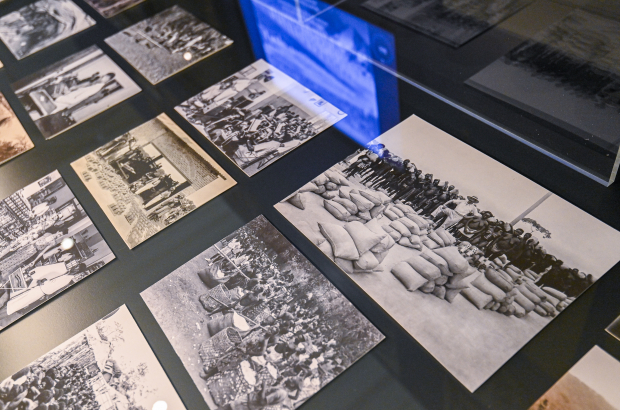- Daily & Weekly newsletters
- Buy & download The Bulletin
- Comment on our articles
Experts deliver report to the special committee on Belgium's colonial past
The 10 experts commissioned by the special parliamentary committee on Belgium's colonial past to guide parliamentarians in their work have delivered their report. The purpose of this report, published on Tuesday, was to clarify certain issues and to set out the various options available to the members of the special committee.
The Congo – Colonial Past committee started in the summer of 2020 in the context of the repercussions in Belgium of the Black Lives Matter movement and the regrets expressed by King Philippe in June of the same year regarding the consequences of colonisation in Congo. One of the first tasks of this committee was to appoint 10 experts to assist members of parliament in their work. The 10 experts had to examine Belgium's colonial past from different points of view.
The report signals "a new stage in the treatment of our country's colonial past," said member of parliament Wouter De Vriendt, who chairs the special committee. He thanked the experts "for their invaluable work on a very delicate subject, in difficult circumstances and within a limited time frame".
"The purpose of this report is not to take decisions but to inform the decisions that are to be made by the members of the special committee," reads the 689-page report. The approach undertaken in the context of this report is threefold: "to present as accurately as possible the concrete realities of the colonial period and their long-term impact; to create a work of memory and reparation that can be undertaken today within the framework of the special committee; and to question the links between colonialism and racism."
Regarding reparations, one of the experts of the working group, art historian Anne Wetsi Mpoma, argues in favour of recognising the colonisation of Congo as a crime. However, the committee does not rule on the extent of the damage in figures. "The damage suffered is impossible to quantify, which does not change the fact that it must be compensated through financial reparations."
In June 2020, King Philippe had expressed his "deepest regrets" for the "acts of violence" and "suffering" inflicted on the Congo. However, this does not yet amount to an apology, and there are no legal consequences – for example, in the form of compensation – associated with it. The special parliamentary committee on Belgium's colonial history must ultimately decide how the past should be managed.
The experts' report is the starting point for the committee’s work. After its presentation to parliament, a decision may be taken on the continuation of this work. According to De Vriendt, it is particularly important not to proceed too quickly. "Our country has a historic responsibility to the victims of the misdeeds of colonialism. This task is too important to tackle in a hurry. The committee will not attempt to perform miracles in the short term."















